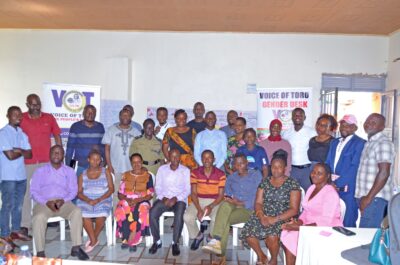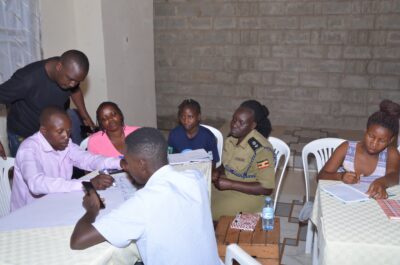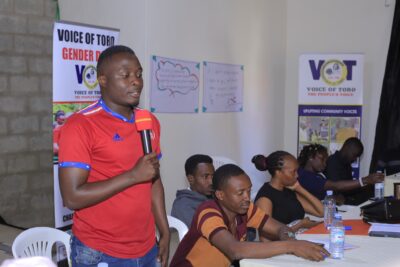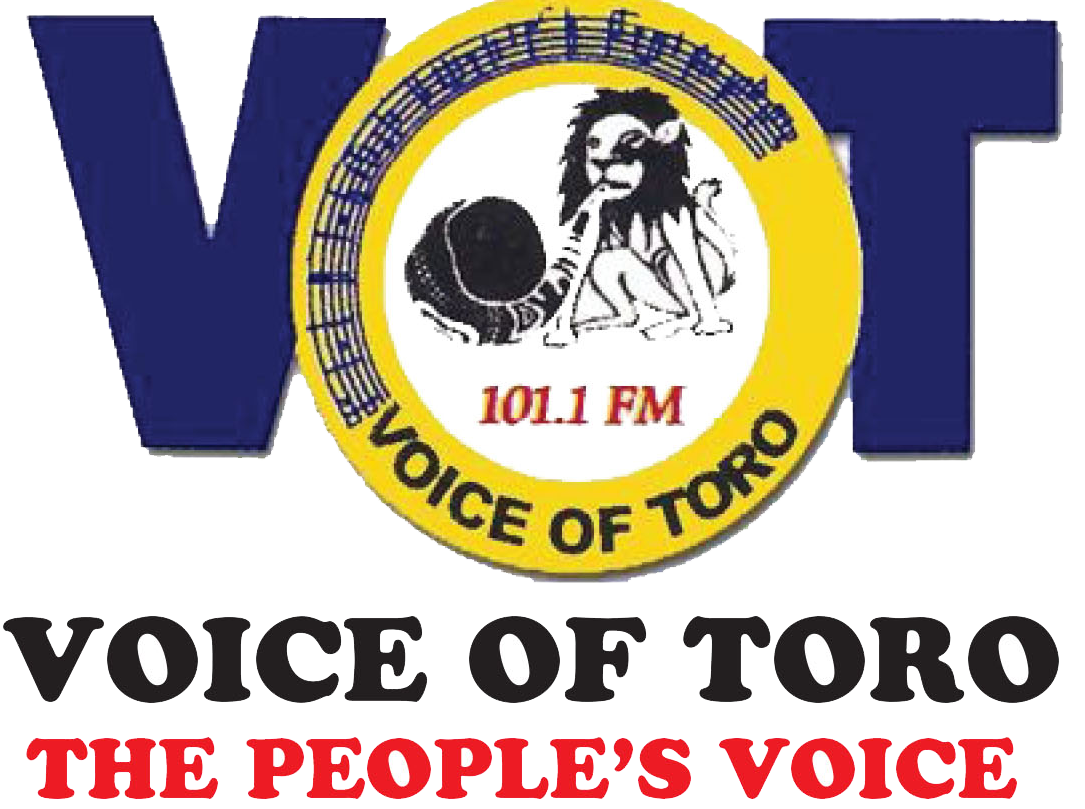Voice of Toro Gender Desk kicks off a two-day gender-sensitive media training in Fort Portal City
BY HOPE LEONTINA
The Voice of Toro Gender Desk on Thursday kicked off a two-day gender-sensitive media programming training for over 30 journalists and other stakeholders from the Rwenzori sub-region. The goal is to equip them with the knowledge to understand and report gender-related issues effectively.

The two-day training, held on Thursday and ending on Friday, is taking place at AK Garden City in Fort Portal City and is supported by the Graduate School of Media and Communication.
Ms Betty Mujungu, the team leader of the Voice of Toro Gender Desk, mentioned that with funding from the Graduate School of Media and Communication, the Voice of Toro radio was able to establish a Gender Desk.
She said for the year up to December 2024, they will be implementing a gender project aimed at advancing gender equality in the media through various activities such as trainings, storytelling, community dialogues, gender round table radio shows, gender radio drama, and gender innovations.
During the first day of training, Ms Mujungu appealed to the participants to be open minded to learning, unlearning and re-learning Gender related challenges and encouraged stakeholders to brainstorm solutions.

Among the stakeholders who participated in the training, include police officers responsible for the gender desk, child and family protection unit, Minister of information Tooro Kingdom, FIDA Uganda, Community development officers, Reproductive health Uganda and political leaders.
Ms Docus Murungi, a media consultant and facilitator, encouraged media practitioners to always prioritize the issues affecting women in the communities in their storytelling and pointed out that many stories reported by journalists demean women in society.
Ms Murungi stressed that journalists should be gender-sensitive in their reporting, using inclusive language, appropriate packaging of stories with voices of women, presenting facts accurately, and seeking out stories of marginalized women in the community to ensure their issues are covered and addressed.
“Journalists need to adopt a gender-sensitive approach when reporting their stories. This involves using inclusive language, ensuring appropriate packaging of stories, presenting factual information, and actively seeking out narratives of marginalized women in the community. By providing space for these women to have their issues reported on, journalists can contribute to a more equitable and representative media landscape.”
Ms Murungi emphasized the necessity for media houses to implement a gender policy for their editorial teams, ensuring gender equality for both male and female reporters.
She highlighted the imbalance in some media houses, where male journalists are often favored over their female counterparts for certain assignments, despite both genders being equally capable.
“The editors, while assigning journalists for fieldwork, need to be balanced. There is no assignment which a female journalist cannot do that is exclusive to male journalists.”
Ms Mujungu echoed these sentiments, pointing out that in many media spaces, stories about women tend to focus on the negative aspects and appealed to media practitioners to always report positive stories about women who can inspire others in society.
The report showed that women were sidelined in news sourcing, especially by radio and television stations in 2023, in print, women were only 27 percent visible and 18 percent both in radio and television.
On the prominence of women in news stories reveals that across newspapers, 89 percent of stories featuring women gave them high prominence, with a mere 2 percent relegating them to low prominence.
Notably, only 1 percent had women solely in the title without substantial coverage within the articles. At the individual country level, Kenya stood out with 98 percent of news articles providing women with high prominence.
On the other hand, Uganda experienced a more diversified scenario, with nearly half of the stories featuring women receiving either medium or low prominence, or 17 percent specifically assigning women low prominence.
In the realm of digital platforms, 89 percent of stories maintained high prominence for women, echoing the trend observed in newspapers. Despite the majority of news stories featuring women receiving pronounced prominence, concerns arise as 26 percent of TV stories fail to afford women the same level of prominence.

During the training, it became evident that numerous gender-related issues persist in the community, spanning gender norms, health, and leadership, all of which require attention.
Ms Lenah Naddungu, a representative from FIDA-Uganda Fort portal Office, highlighted several leadership-related gender issues prevalent in the region which include the limited participation of women in elective politics, with those who do participate often seeking affirmative positions such as women members of parliament.
Additionally, there is a lack of female representation in leadership positions within religious or cultural institutions.
In terms of health, gender-related challenges persist, such as the limited involvement of men in accompanying their partners for antenatal care services at health facilities. Furthermore, issues surrounding maternity leave also need addressing.
Gender norms continue to shape societal expectations and behaviors. Women are often deprived of their rights, such as the right to name a child, the right to marry, and the right to own property, among others. These norms perpetuate inequality and restrict the autonomy of women within society.


